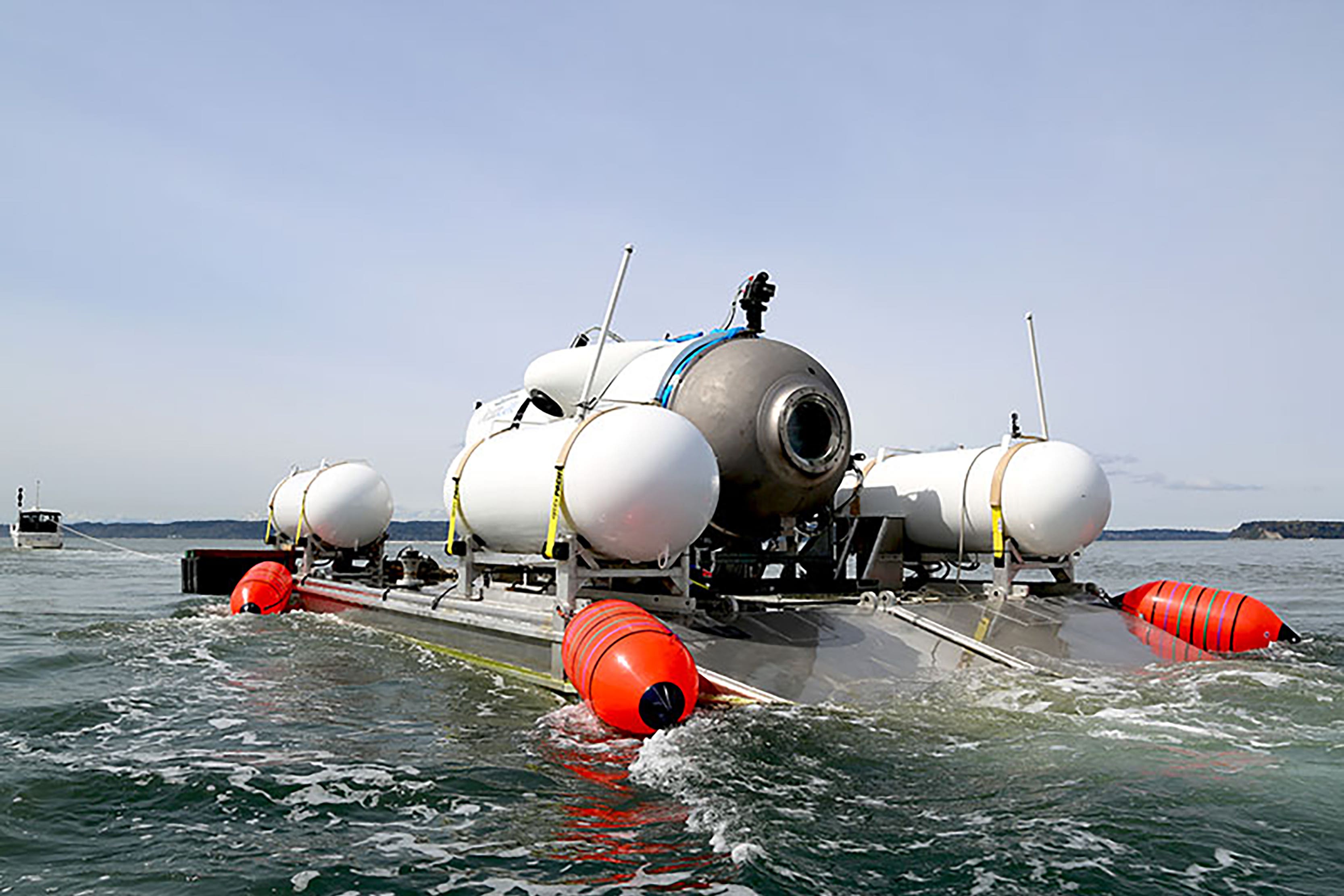Noises heard ‘don’t appear to be connected to location of Titan debris’
Rear Admiral John Mauger said there did not appear to be any connection between the underwater noises detected and the location of the debris.

Underwater noises heard in the search for a missing submersible do not appear to be connected to the location where debris was found, the US Coast Guard has said.
The noises, described as “banging”, were heard on Tuesday and Wednesday during the search for Titan, which went missing on Sunday during a voyage to the Titanic shipwreck off the coast of Canada.
But on Thursday during a press conference in Boston, the US Coast Guard said debris was found which was “consistent with a catastrophic loss of the pressure chamber”.
Rear Admiral John Mauger said there did not appear to be any connection between the underwater noises detected during the search and rescue mission and the location of the debris on the seafloor.
He said: “So throughout the search efforts, we reacted to the information that we had available to us and while we continue to send it off for deeper analysis, again really complex operating environment for us to work in, let me check with the experts, but there doesn’t appear to be any connection between the noises and the location on the seafloor.
“This was a catastrophic implosion of the vessel, which would have generated a significant broadband sound down there that the sonar buoys would have picked up.”
And after he was asked about the timing of the implosion, and whether it happened right at the moment the vessel lost contact, Rear Admiral Mauger said it was “too early to tell”, but added that the sonar buoys had not picked up any catastrophic events during the last 72 hours they had been in the water.
He said: “Right now it is too early to tell with that.
“We know that as we’ve been prosecuting this search over the course of the last 72 hours and beyond that we’ve had sonar buoys in the water nearly continuously and have not detected any catastrophic events when those sonar buoys have been in the water.”